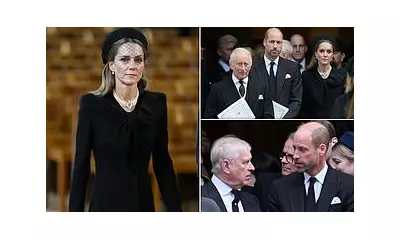
Broadway and screen star Kristen Chenoweth has found herself at the centre of a fiery social media storm after expressing public admiration for controversial right-wing commentator Charlie Kirk.
The Tony Award-winning actress, who has long been a beloved figure within the LGBTQ+ community, posted a now-deleted photo on her Instagram Story posing with Kirk, founder of the conservative group Turning Point USA. She captioned the image with glowing praise, calling him “lovely” and “so smart,” a move that has been labelled a profound betrayal by her fanbase.
The Core of the Controversy
The backlash was swift and severe due to Kirk’s well-documented history of making anti-LGBTQ+ statements. He has publicly supported the debunked and widely condemned practice of conversion therapy and has made numerous inflammatory remarks about transgender individuals. For many of Chenoweth’s supporters, her endorsement was seen as aligning herself with views that directly harm the community that has steadfastly supported her career.
A Community Feels Betrayed
Fans and LGBTQ+ advocates took to X (formerly Twitter) and Instagram to express their hurt and disappointment. Many highlighted the stark contrast between Kirk’s rhetoric and Chenoweth’s own public identity as a Christian and an ally. One user poignantly stated that her action felt like “a slap in the face,” while others questioned how she could support someone whose organisation actively campaigns against LGBTQ+ rights.
The criticism underscores a growing trend where public figures are held accountable by their audiences for the company they keep and the ideologies they appear to endorse, even indirectly.
Silence from the Star
As of now, Kristen Chenoweth has not issued a public statement or apology addressing the furore. Her decision to simply delete the contentious post without comment has, for many, only added fuel to the fire, leaving followers with unanswered questions about her stance.
This incident serves as a potent reminder of the intense scrutiny celebrities face in the digital age and the delicate balance they must maintain when navigating political and social affiliations.





